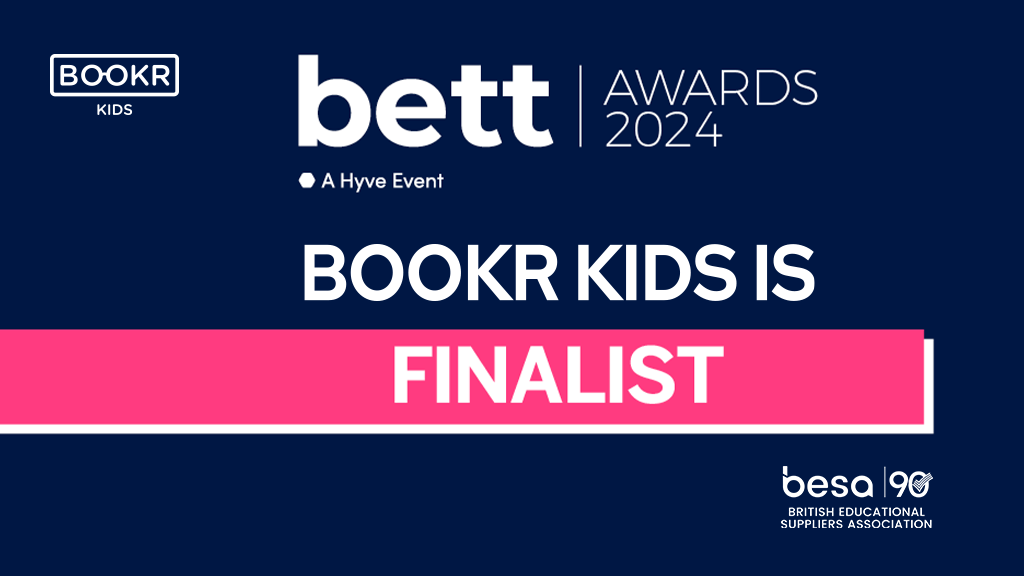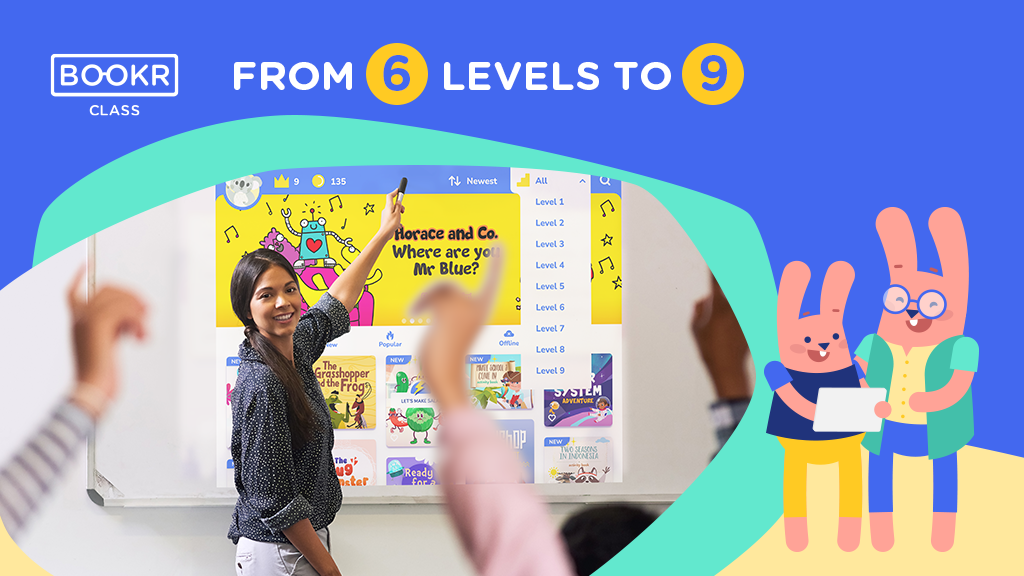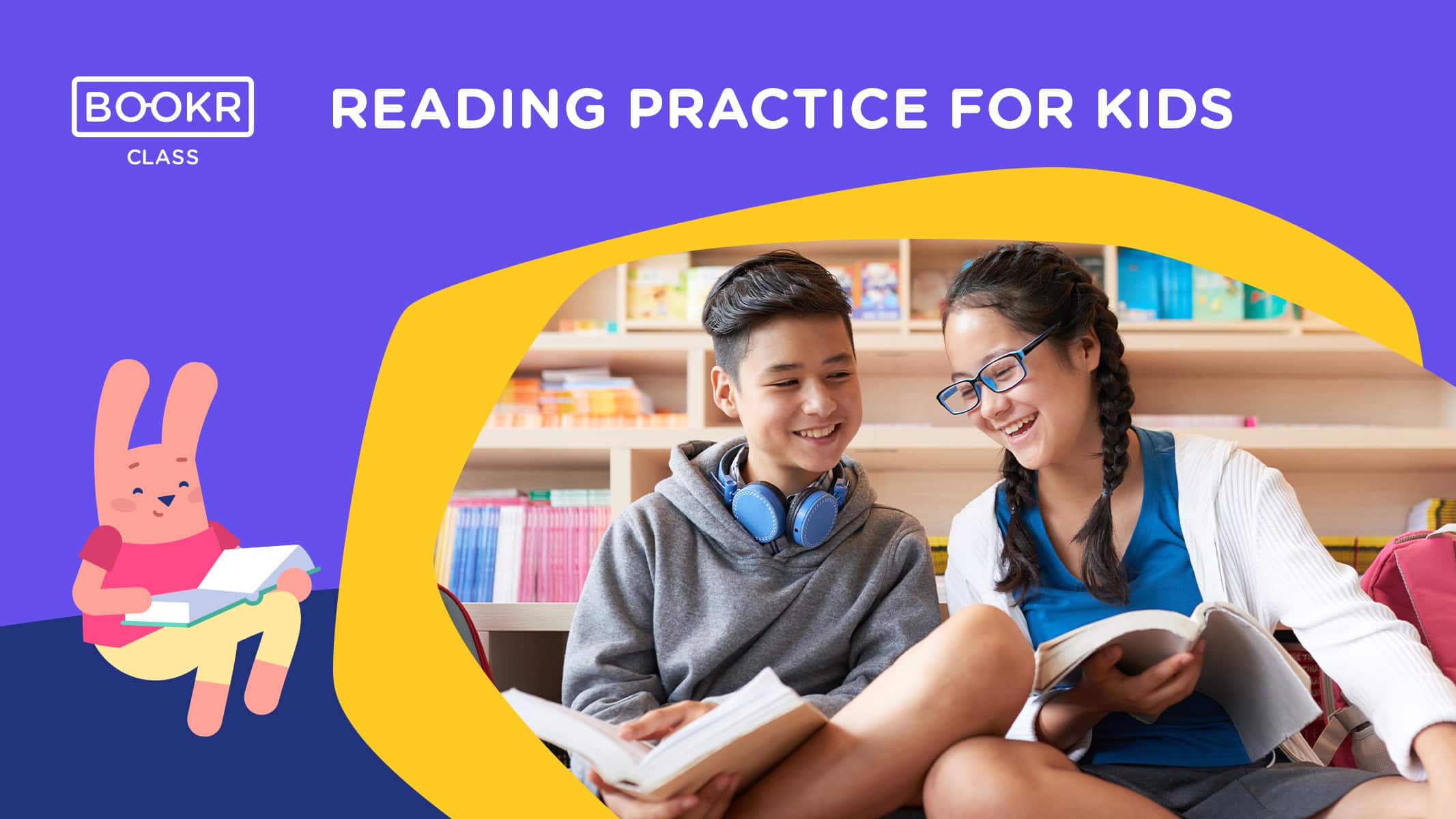The Montessori Method in the Digital World
The success of the Montessori method has been unbroken for more than a hundred years. What’s the secret? Well, mostly because of its clear principles: putting the personality of the child at the center of education.
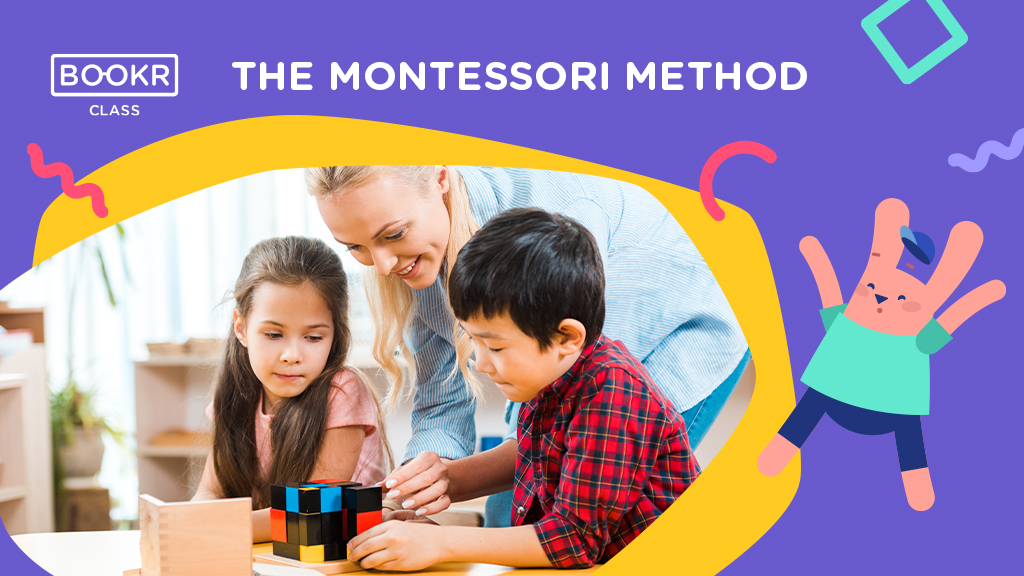
Table of content
Every child develops differently, has different personalities, strengths and weaknesses, and requires different kinds of support to meet their individual needs. It might seem that we all know this, but the mindset is still missing from the conventional school systems with rigid curriculum and assessments. It’s also very inviting that you don’t have to be a qualified teacher or a specialist in pediatric psychology for it, it is sufficient if you’re “only” a parent.
Maria Montessori laid the foundations of her pedagogy almost a hundred years ago. Can her insights and methods be applied to new generations, where screentime has become an everyday part of most children’s lives?
Who Was Maria Montessori?
Before we jump in, let’s take a second to look at this exciting backstory: who invented the Montessori method?
Maria Montessori, the founder and inventor of one of the most influential pedagogical systems of the twentieth century, was born in 1870 in the Italian village of Chiaravelle.
She was called the Apostle of Pedagogy, the new “Columbus,” the discoverer of the childish soul as she was able to combine her knowledge of medicine and education in the Maria Montessori pedagogy.
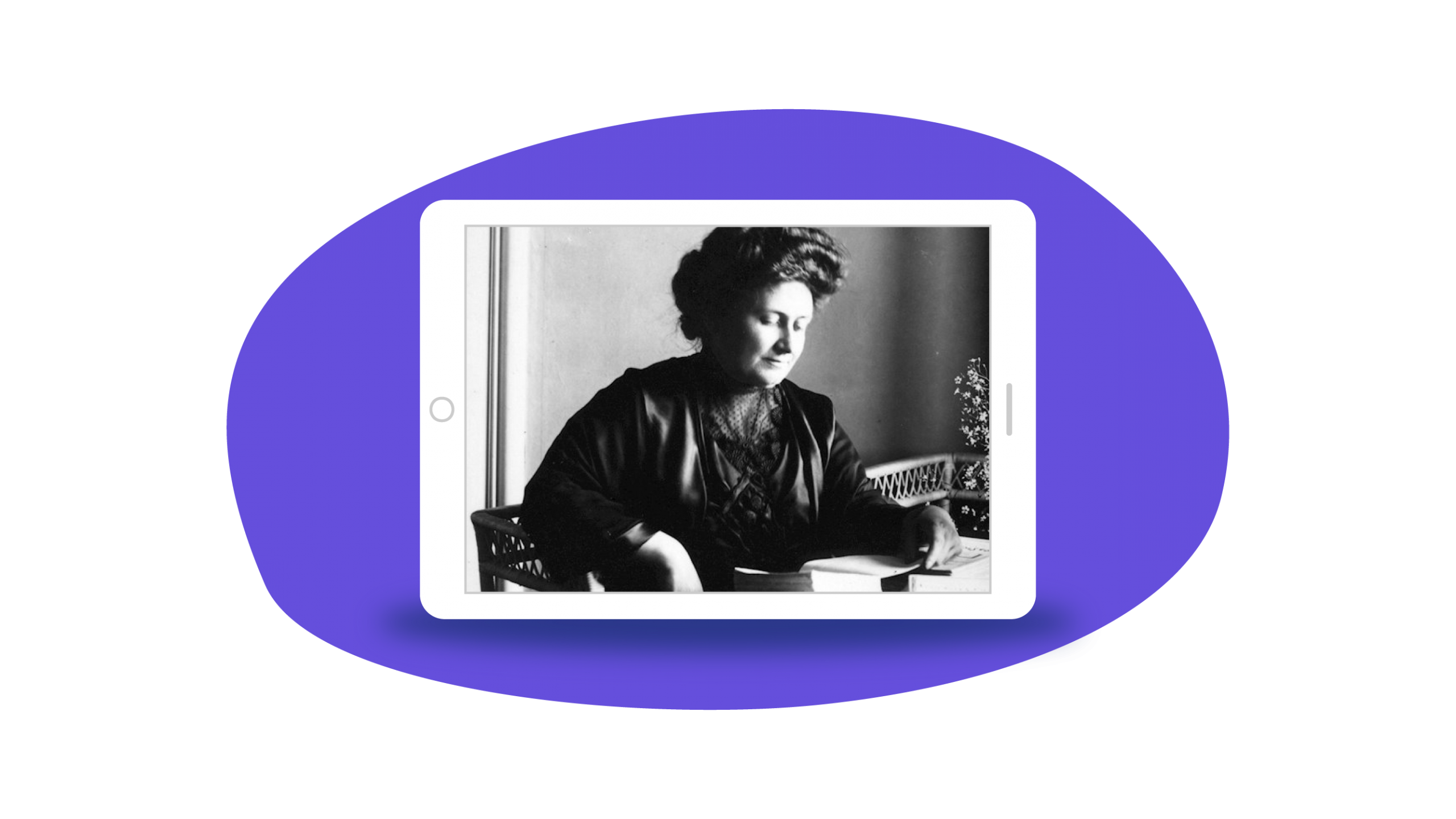
As a young physician, she worked in a pediatric ward, where she soon concluded that intellectual impairment could be corrected not only by medication but by pedagogical means. At the beginning of the century, with her scientific observations and experiments as a doctor, she laid the foundations of a pedagogy that was the exact opposite of the previous conception of education. She worked all her life with a goal of educating a free, happy, self-conscious new generation.
What Is the Montessori Method?
While the majority of children in schools with traditional pedagogy perform below their abilities, the Montessori method aims to improve the abilities of each child to their maximum potential.
It’s a well-known fact that the development of children’s skills is highly dependent on their social background. In schools where this is not taken into account, the achievement gap between learners gets wider and wider. Poorly prepared children are unable to advance in the pace planned for the average child and, as a result, are increasingly lagging behind. This early disadvantage then shows in most areas of their lives, and gives an unwanted prediction of their academic development in the long run, as well.
The main goal of the Montessori method is for the children to learn through experience at their own pace, according to their own level, hence creating a more inclusive classroom for learners, even for those with special needs. In a Montessori institution, the primary task of the teacher is to observe each child, their skills, abilities, preferences, and personality and provide them with a planned development path starting from their own level.
Montessori is an alternative educational method, which eliminates the old concept of teaching-learning and the PPP model of presentation-practice-production.The task of the teacher is not direct, explicit teaching, but to provide conditions in which children will be able to discover the the world: properties, characteristics, consequences and different conditions. It’s not about learning knowledge, but improving skills.
All in all, the Montessori method is based on experiential learning full of self-directed activities, hands-on learning and collaborative play which all lead to a deeper understanding of language, mathematics, science, social interactions and the world in general.
Montessori classrooms are carefree, peaceful, but most importantly happy places designed to meet the developmental needs and natural interests of the little ones. Children move freely and make creative choices in their learning, while the educator’s job is to create the best conditions for learning and to provide the necessary assistance following an independent, active child.
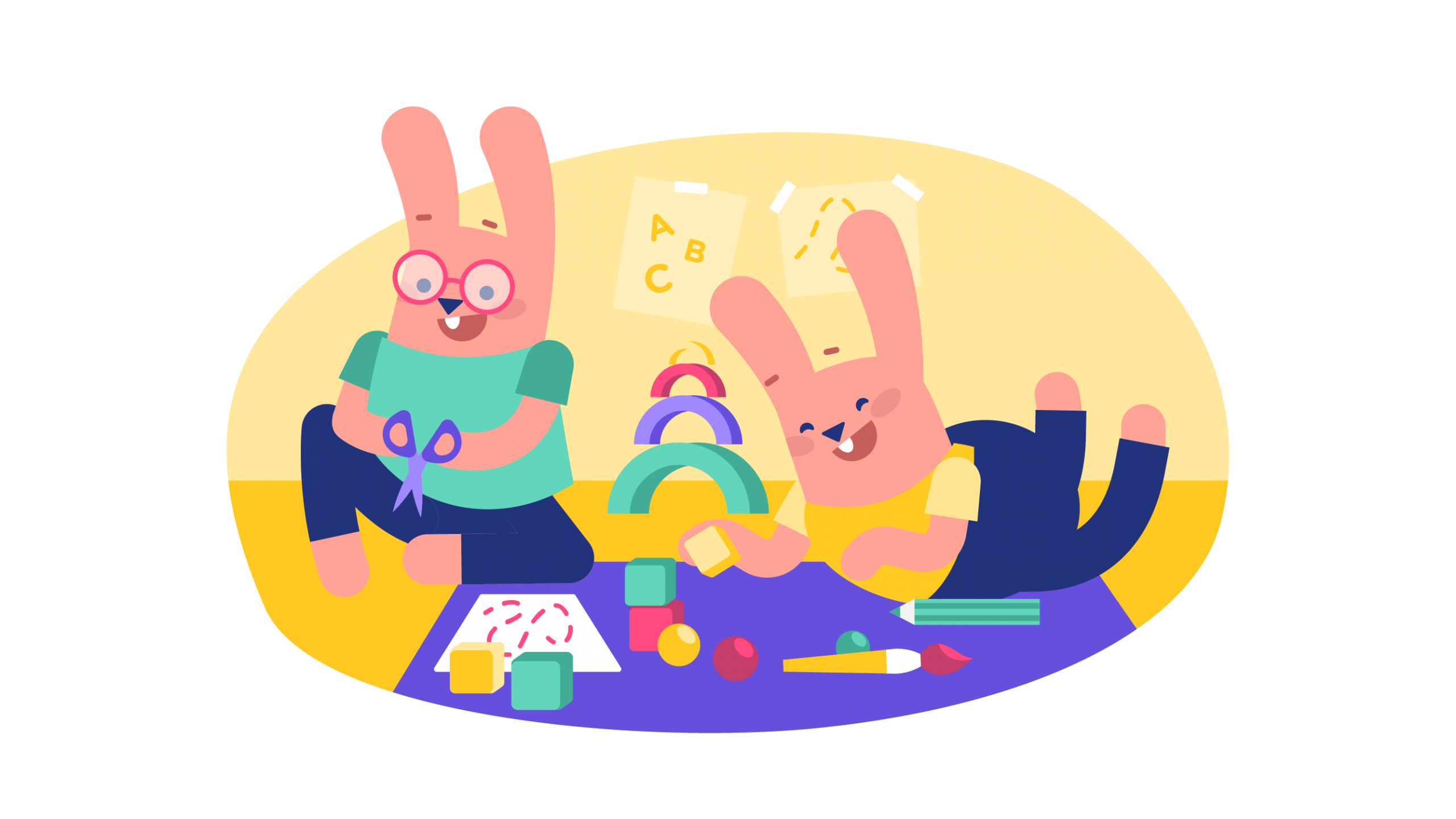
It is not the amount of knowledge that matters, but the development of skills.
In the classroom children work in groups or individually in various places and settings with self-chosen classroom materials supporting one specific aspect of skill development. The tools are friendly and inviting to learn, and suitable for them to solve tasks alone, to get to know the world through them, and to check whether their theory or solution is correct or not. The tools and materials are at easily accessible places, clearly showing where to find them.
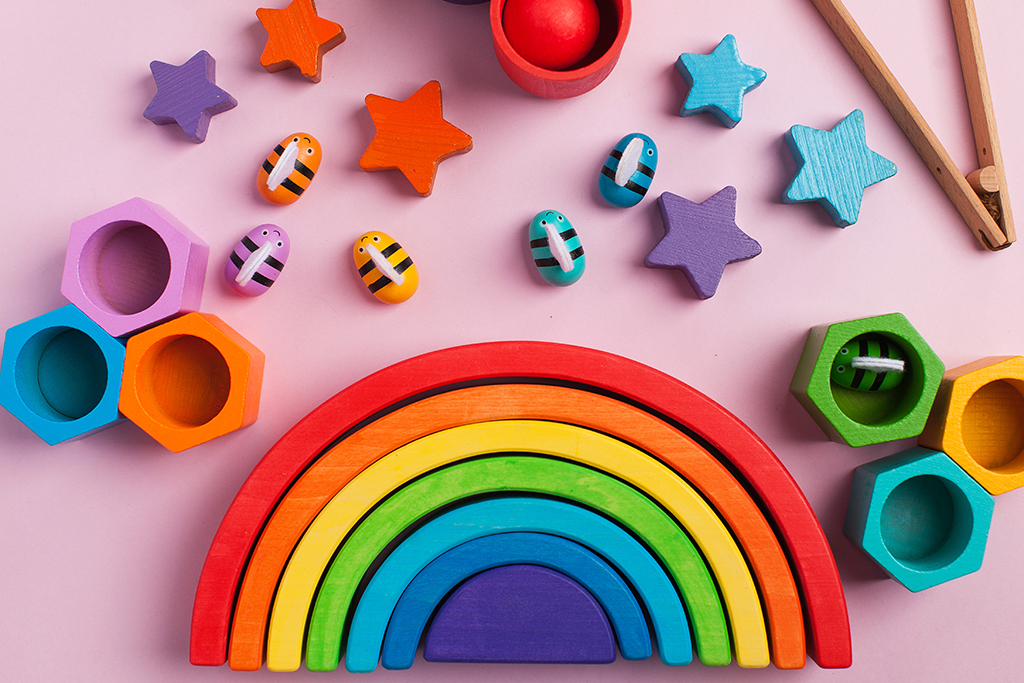
This way, students can choose the things that they find the most convenient for their project on their own. There is always a place to move around a bit, not only chairs to sit down to tables, but to find positions that are comfortable to work in.
Montessori in the Modern World
The timeliness of Maria Montessori’s pedagogy is growing nowadays and its validity is confirmed by the latest scientific research – although laid its foundations nearly a hundred years ago and is still experiencing a worldwide renaissance. The reason for this is that educators feel the need to develop personal values and intrapersonal skills that are paramount in our rapidly evolving society.
These are: independence, problem recognition, problem-solving thinking, versatile creativity, ability to collaborate, tolerance, acceptance of otherness, helpfulness, resilience, flexibility, learning about and appreciating the culture of different peoples, such as living side by side peacefully, recognition of biological balance, the love of nature, and the protection of the environment.
Through its experiential environment the Montessori method allows children to develop self-awareness, and to learn to choose for themselves, hence laying down the foundations for a more contented future self.

Since the development of Montessori education, society has changed dramatically in much of the world, and Montessori’s pedagogy has expanded to meet new challenges. Since computer technology and screen use were not an integral part of everyday life in Maria Montessori’s time, there is no trace of technology use in the original methodological description.
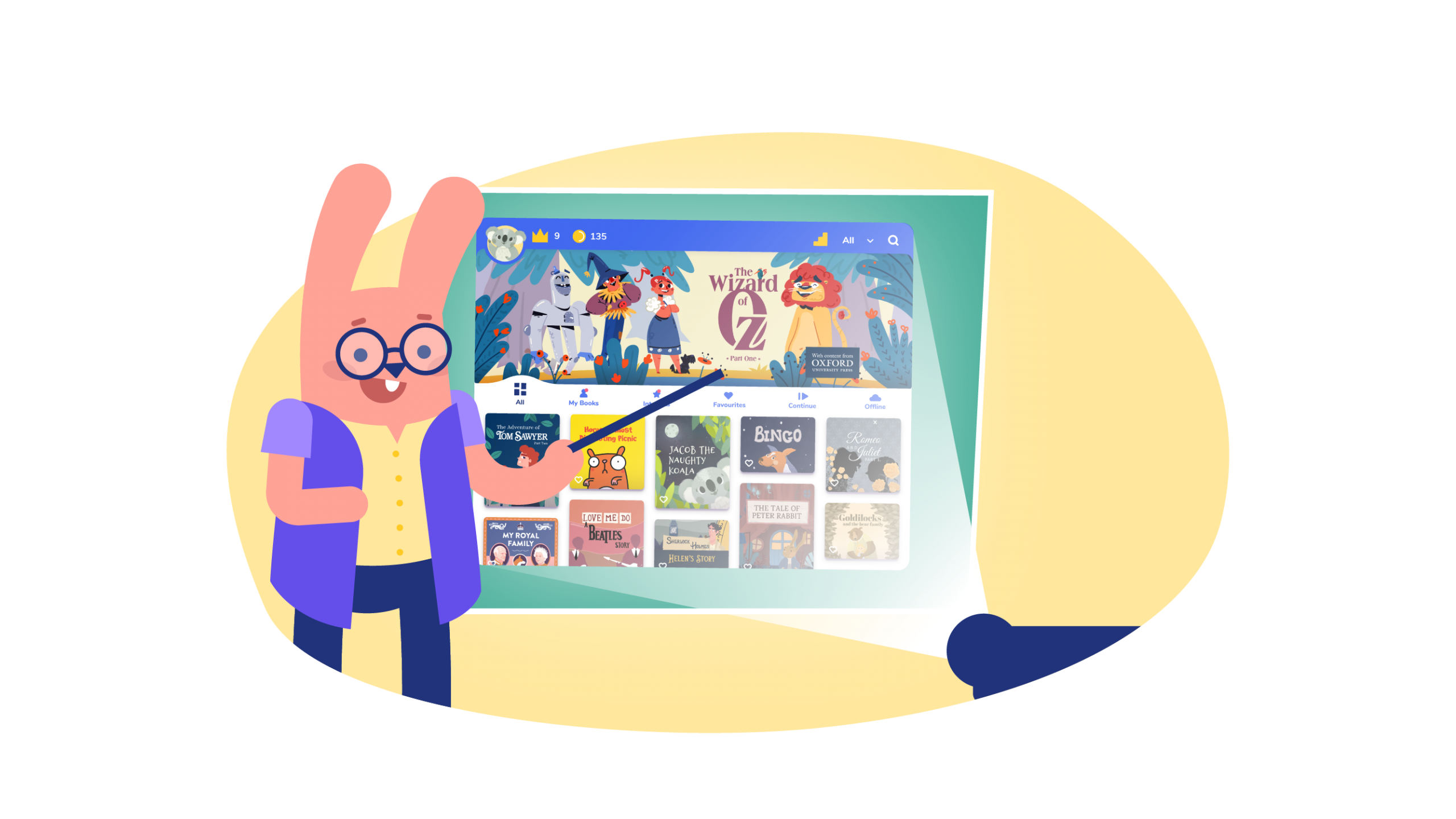
However, if we keep in mind the basic teachings of the method, which is to help children understand the world based on their natural curiosity, we should not leave the integration of technology, a very important factor in today’s life, out of the learning process.
As it was published by the Journal of Montessori Research (2017, Volume 3, Issue 1,):
Although some members of the Montessori community feel that these changes may hurt the integrity of the paradigm (Lillard, 2008), others argue that new materials and new technologies are needed because the original materials may not authentically reflect contemporary society (Hubbell, 2006). Because technology is now integrated into our daily lives, some researchers and educators are pushing for the integration of technology in Montessori classes as a way to provide more authentic and meaningful learning experiences.
Through the research, a few teachers shared their own views on the topic:
Technology is actually very important because nowadays everything is based on technology, and we as adults are asked to do it [use technology] in order to be competitive
If Dr. Montessori were living today, she would have invented a technology-rich robotic classroom.
If you’d like to learn even more about the original idea, look up ‘The Montessori Method’, which is a book written by Maria Montessori that was first published in 1912. It outlines the principles and practices of Montessori pedagogy.
Montessori’s method book has been translated into many languages and is still widely read and studied by educators around the world who are interested in the Montessori approach to education.
How BOOKR Class Can Be A Part of the Montessori Education
The medium of education changes as more and more information is (solely) available in the digital universe. BOOKR Class can introduce children to this digital world with a safe, ad-free English learning application that is based on the classic idea of storytelling in a modern format.
The BOOKR Class application is designed in a way so that its use does not require adult help. Through experimenting with the app, it is possible to enjoy the content freely and easily from the age of 4. Thanks to its library view, children have the opportunity to choose books according to their own interest, and read from different levels simultaneously, even within one classroom activity.

By using the app, kids can learn English as a foreign language from the very beginning, or from their current level. BOOKR Class provides digital interactive graded readers on 6 levels, that – instead of teaching words and grammar rules separately – puts the language into a meaningful context, and with the help of scaffolding illustration, narration and animation, learners can comprehend the meaning on their own, without any explanation.
Books and games in the app made for children under the age of 6 do not require reading skills, they can rely on scaffolding narration and animation to understand the text. The games at the end of the books focusing on various language-and cognitive skills are following a clear UX design that makes the tasks obvious.
The Montessori method uses flashcards in its own way. Instead of really flashing the cards, then asking kids to recall the words by memory, the Montessori method encourages children to match cards with real objects. BOOKR Class has its own collection of flashcards that are available in printable version as well, making parents’ and educators’ lives easier.
Montessori Books in BOOKR Class
In addition to its Montessori friendly system, BOOKR Class got widened with a series of specific Montessori books. The Montessori book series by White Star Publishing is a collection of texts for children which contains playful activities aimed to encourage the development of the main cognitive skills following the Montessori method and its most typical topics (animals, fruits and vegetables, numbers, telling the time,etc).
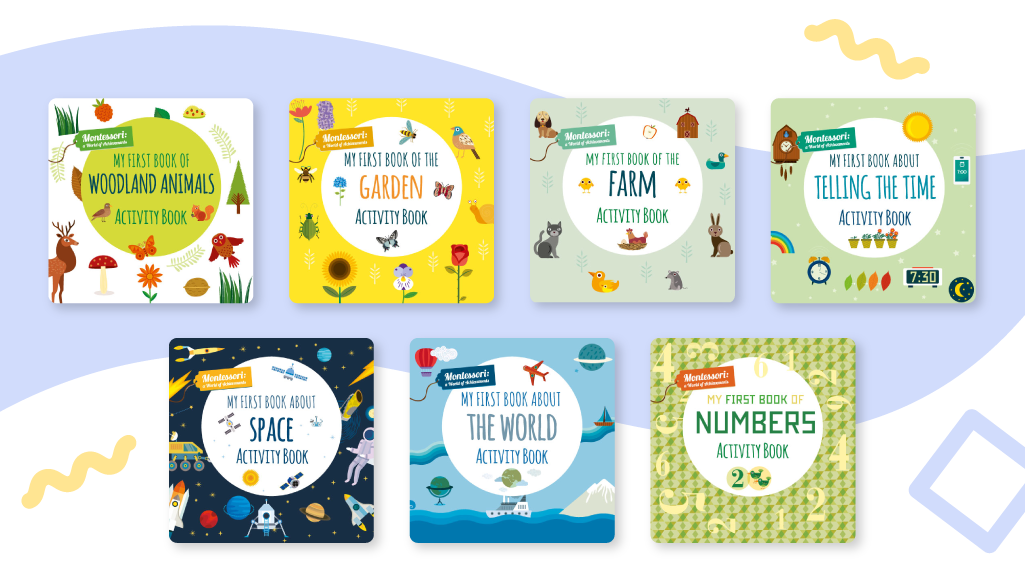
The contents follow a progressive complexity to challenge the children to complete various tasks with great results all by themselves.
These books got converted into a very new interactive ‘Activity book’ format, that is perfect for whole group classroom use, or even for individual work.
Would you like to try them with your class?
